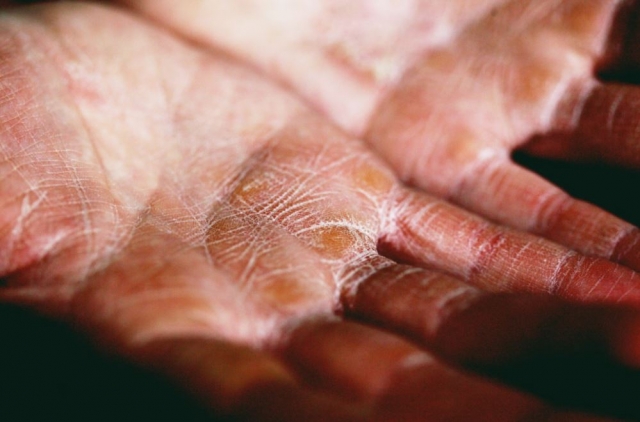Eczema, sometimes referred to as atopic dermatitis, is a chronic skin disorder marked by inflamed, itchy skin areas. People of all ages are affected by eczema. Also, due to its protracted symptoms and frequent flare-ups, it can be challenging to treat.
The National Eczema Association states that in the U.S., around 31.6 million people (about 10% of the population) are affected by eczema. The condition is particularly common in young children, with its prevalence reaching a peak in early childhood. Overall, it's estimated that one in ten people will experience eczema at some point in their lives.
The good news is that with the right treatments and daily care routine, individuals can significantly reduce discomfort and improve their skin's health. In this article, we'll explore some of the most effective treatments available, highlight the importance of expert advice, and offer practical daily care tips.
Top Treatments for Eczema: What Works Best?
The Atlantic notes that topical steroids, like over-the-counter hydrocortisone cream, are often effective in reducing eczema flare-ups by calming the immune response. If these treatments aren't sufficient, doctors may prescribe more potent options like oral steroids (e.g., prednisone) or oral immunosuppressants (e.g., cyclosporine). While these medications can control eczema symptoms, they also impact the overall immune system, leading to broader effects.
For certain individuals, phototherapy, or light therapy, has demonstrated encouraging outcomes in addition to conventional therapies. This involves subjecting the skin to regulated UV radiation exposure, which may help lessen eczema symptoms. Before beginning any new treatment plan, it's essential to speak with your doctor to be sure it's suitable for your particular situation.
Expert Care: Dermatologists in Your Area
While over-the-counter medications may offer some relief, seeing a dermatologist is essential for successful eczema management. Dermatologists are specialists in the diagnosis and treatment of skin conditions, including eczema, and they may offer customized treatment plans. They could suggest cutting-edge treatments like biological medications, which target particular immune system components to lessen inflammation.
Ayana Dermatology & Aesthetics states that frequent check-ups with a dermatologist can also help manage the disease and modify treatments as required. If you're living in Fort Lauderdale, several dermatologists here are highly regarded for their expertise in treating eczema. They offer various services, from comprehensive skin assessments to specialized treatments tailored to your unique needs.
WebMD highlights that there are 580+ dermatologists available in Fort Lauderdale, FL, each bringing an average of 30 years of experience. This extensive experience means patients can expect highly skilled care for managing skin conditions. Whether you're dealing with eczema or another issue, Fort Lauderdale offers a wealth of expertise in dermatological care.
Scheduling a consultation with a local dermatologist can be a game-changer in managing eczema, ensuring you receive the best possible care and support. Check out https://ayanaderm.com/ to learn how a local dermatologist can provide the expert guidance you need to manage your eczema effectively.
Diet and Eczema: Foods to Include and Avoid
Your diet plays a crucial role in managing eczema, as certain foods can either trigger flare-ups or help soothe inflammation. Eating more omega-3-rich foods, including walnuts, flaxseeds, and fish, can help maintain healthy skin and lessen inflammation. Antioxidant-rich foods like berries, leafy greens, and nuts may also provide benefits by protecting the skin from oxidative stress.
However, it's important to be aware of any dietary triggers that can make eczema symptoms worse. Dairy products, high-sugar diets, eggs, and foods with processed components tend to be the causes. Keeping a food diary to track your diet and symptoms can help identify specific triggers, allowing you to make informed dietary choices.
The Role of Stress Management in Eczema Control
Stress is a well-known trigger for eczema flare-ups, making it essential to incorporate stress management techniques into your daily routine.
A 2023 study published by NIH reports that chronic stressors, such as work and family issues, had a greater impact on eczema. Researchers noted that these ongoing stressors might trigger an immune-mediated inflammatory response. This inflammation may impair the skin barrier, which is necessary for preserving moisture and shielding the body from irritants.
Activities like yoga, deep breathing techniques, and mindfulness meditation can help lower stress levels, which could decrease the frequency and intensity of eczema episodes. Regular physical activity and ensuring you get enough sleep are also key components of stress management that can positively impact your skin's health.
In addition to these practices, creating a calming environment at home and establishing a routine that promotes relaxation can make a significant difference. Whether it's setting aside time for a hobby you enjoy or practicing relaxation techniques, managing stress is an important aspect of controlling eczema.
FAQs
What are the benefits of phototherapy for eczema?
Phototherapy, or light therapy, uses controlled ultraviolet light to treat eczema, helping to reduce inflammation and itching. It's particularly effective for those who don't respond well to topical treatments. This therapy must be administered under medical supervision to ensure safety and effectiveness.
How can I find a dermatologist with specialized eczema experience?
To find a dermatologist experienced in treating eczema, check local medical directories or review platforms for specialists with high ratings and positive feedback. Ask for referrals from your primary care physician or contact local dermatology clinics for recommendations. Experience in eczema management often correlates with better treatment outcomes.
What specific foods might trigger eczema flare-ups?
Certain foods, such as dairy products, eggs, and high-sugar or processed items, are known to potentially trigger eczema flare-ups. A detailed food journal may be quite helpful in recognizing and avoiding certain triggers. A nutritionist can provide personalized guidance to create an eczema-friendly diet plan.
Managing eczema effectively involves a comprehensive approach. While topical medications and phototherapy can provide relief, it's essential to consult a dermatologist for a tailored treatment plan. This might include advanced therapies or dietary changes to tackle underlying triggers.
Incorporating stress management techniques and maintaining a healthy diet can further enhance your skin health and overall quality of life. Remember, with the right strategy, eczema is manageable, and you can achieve lasting control over your condition.






